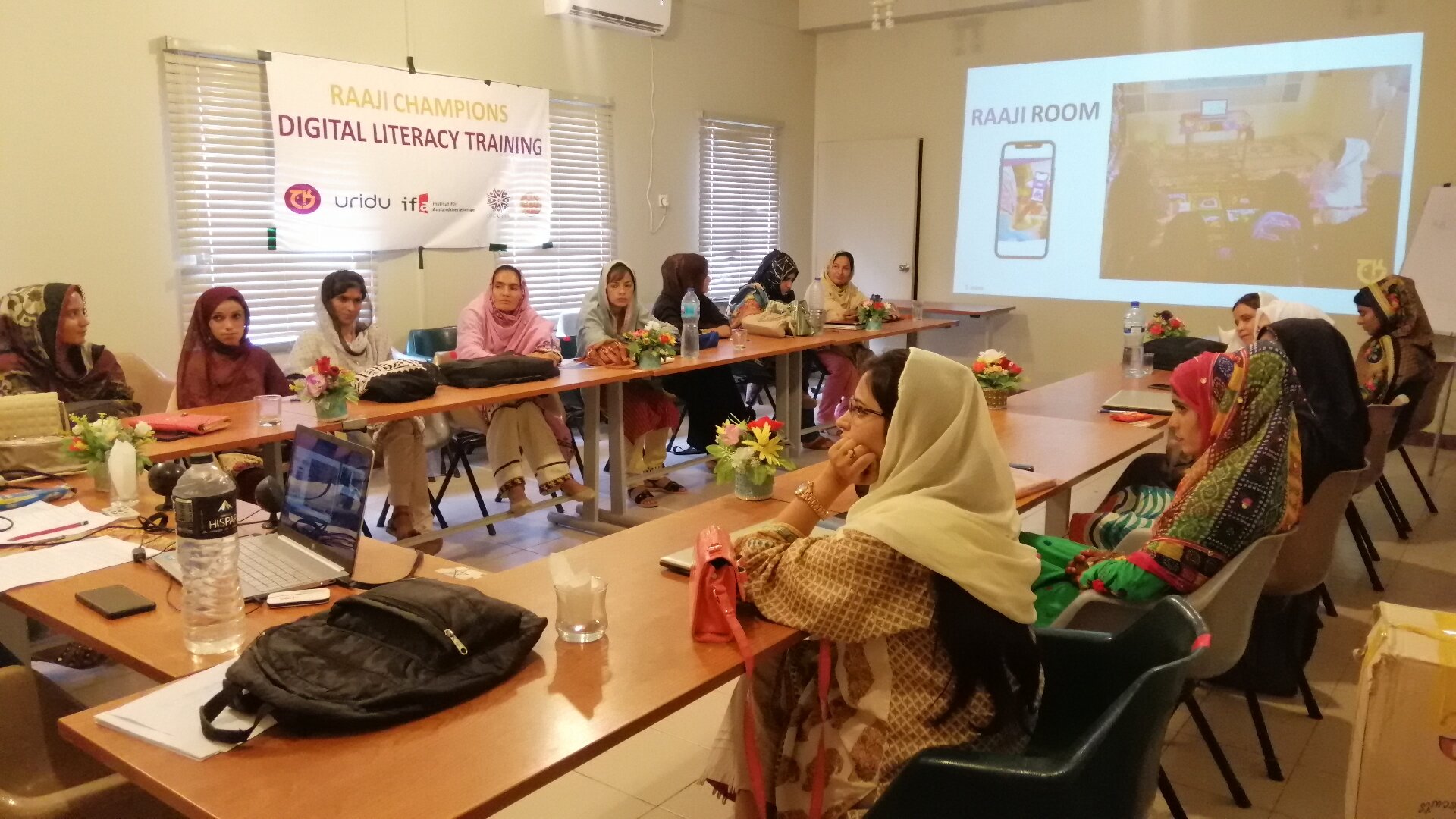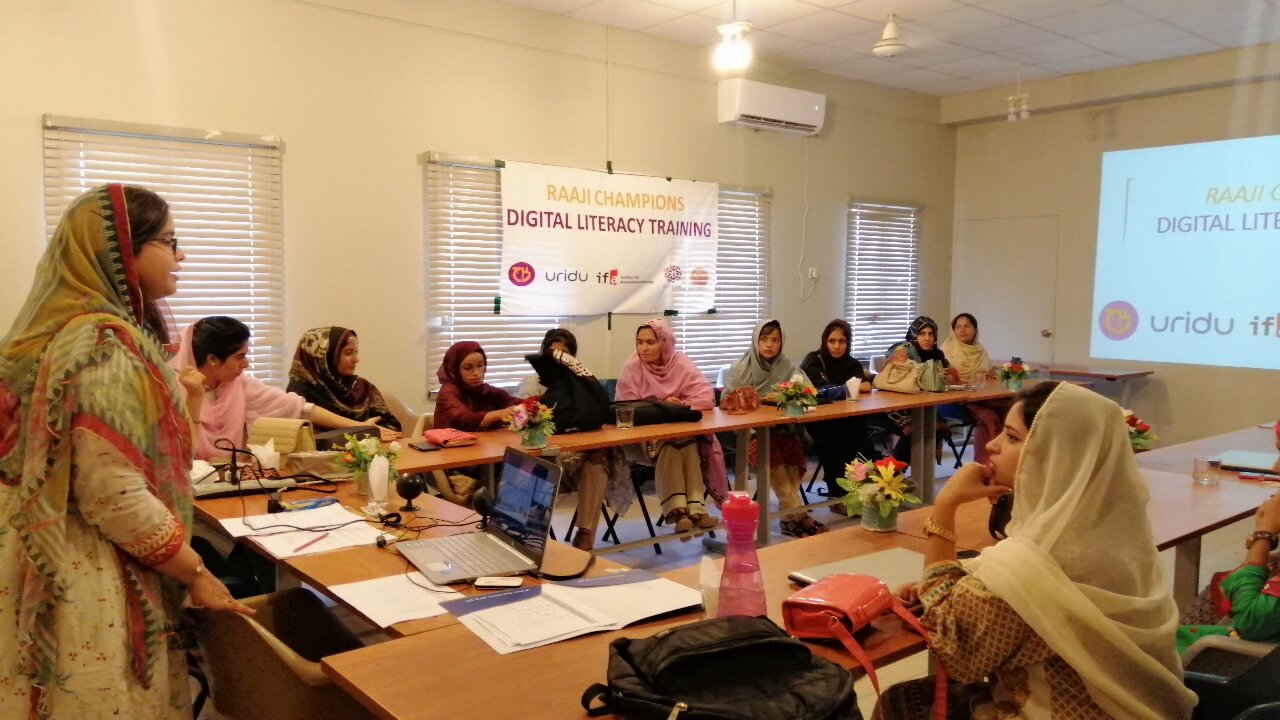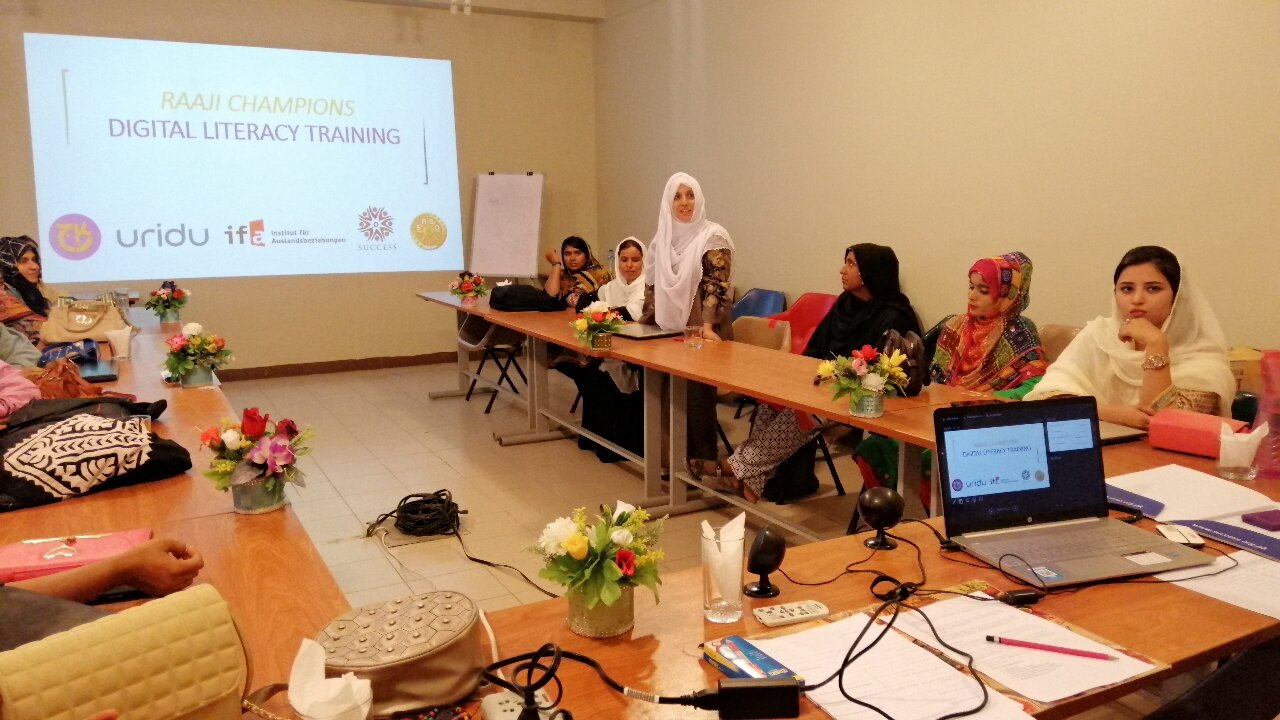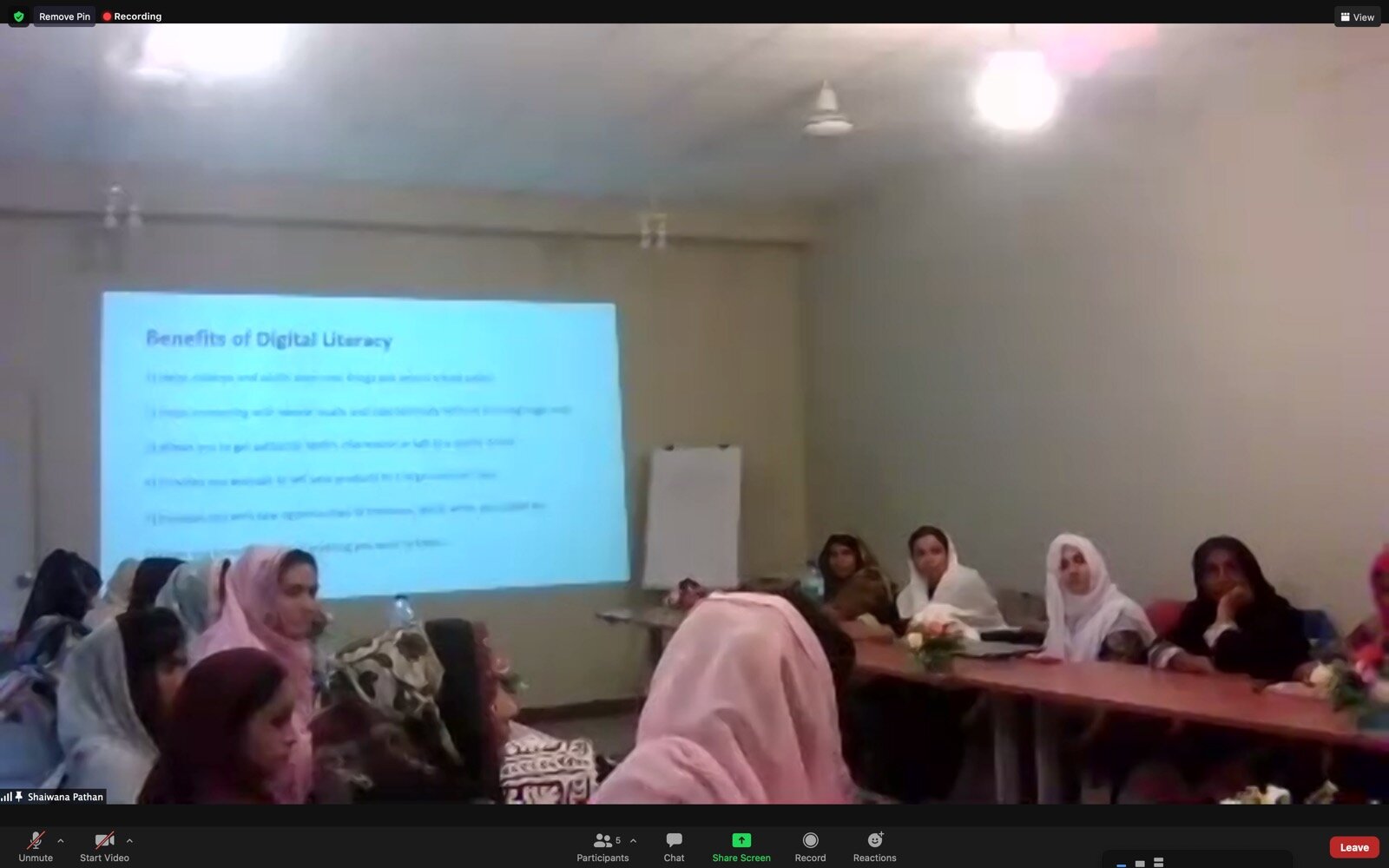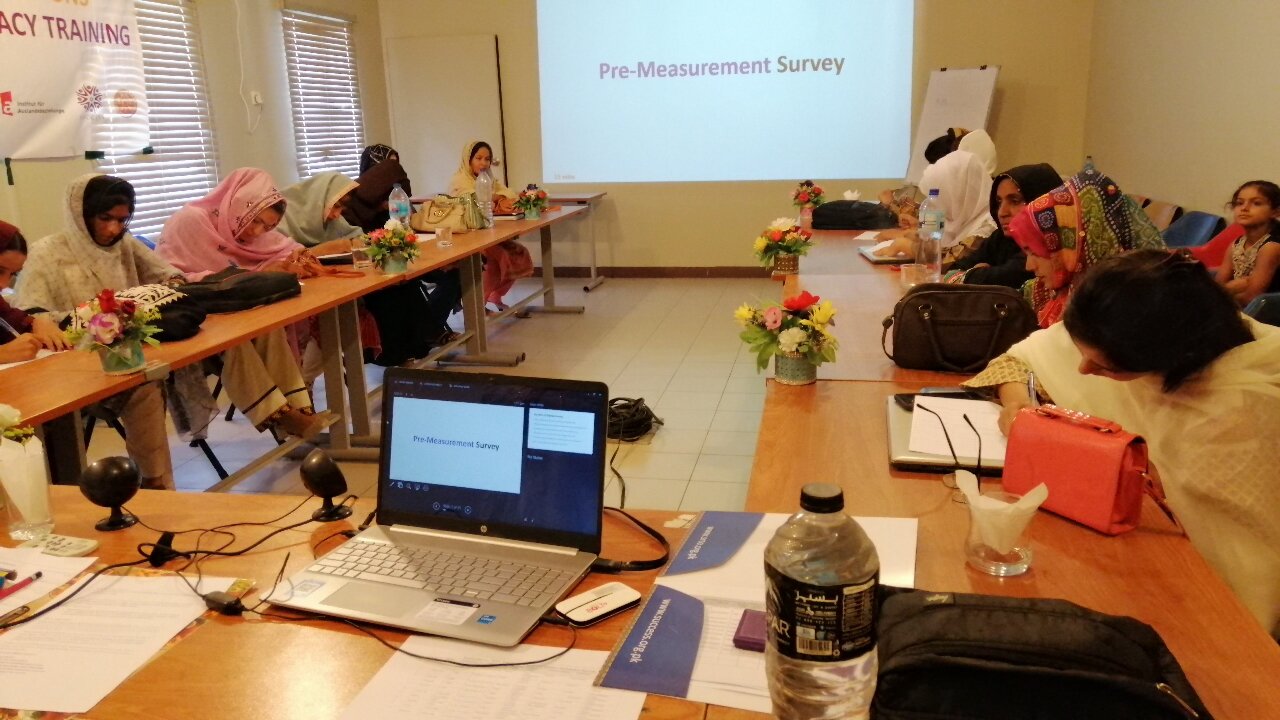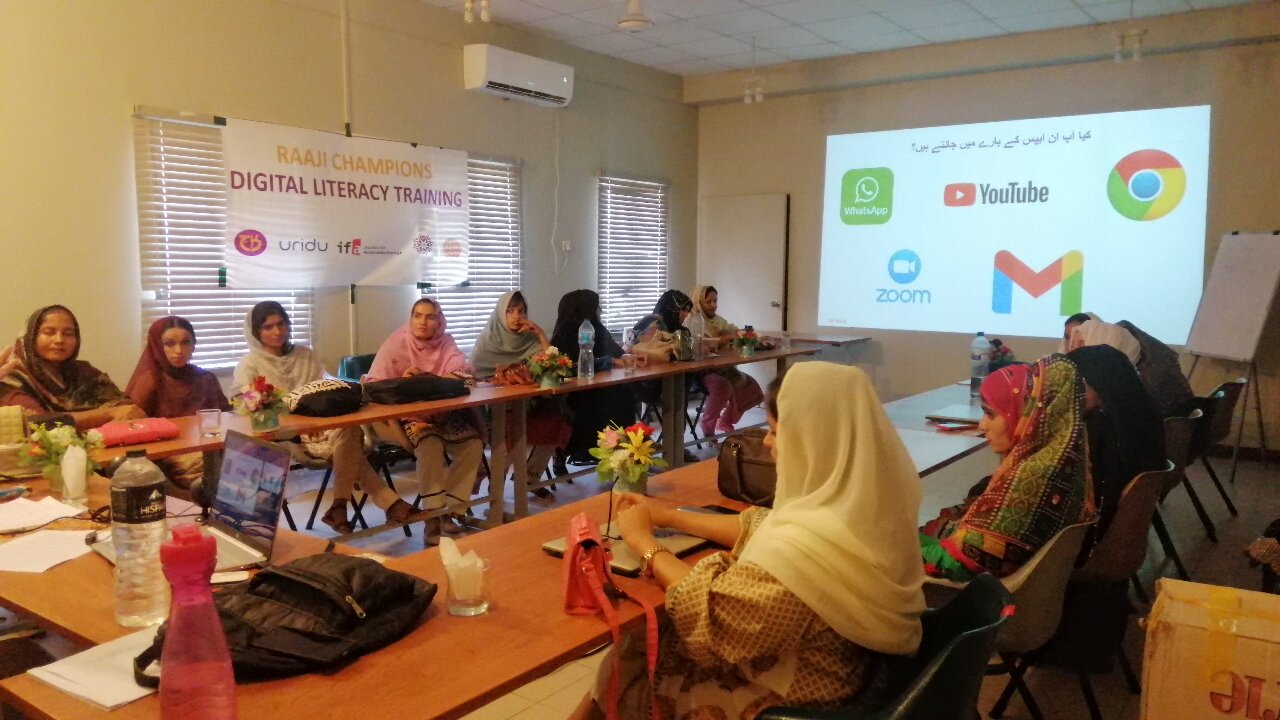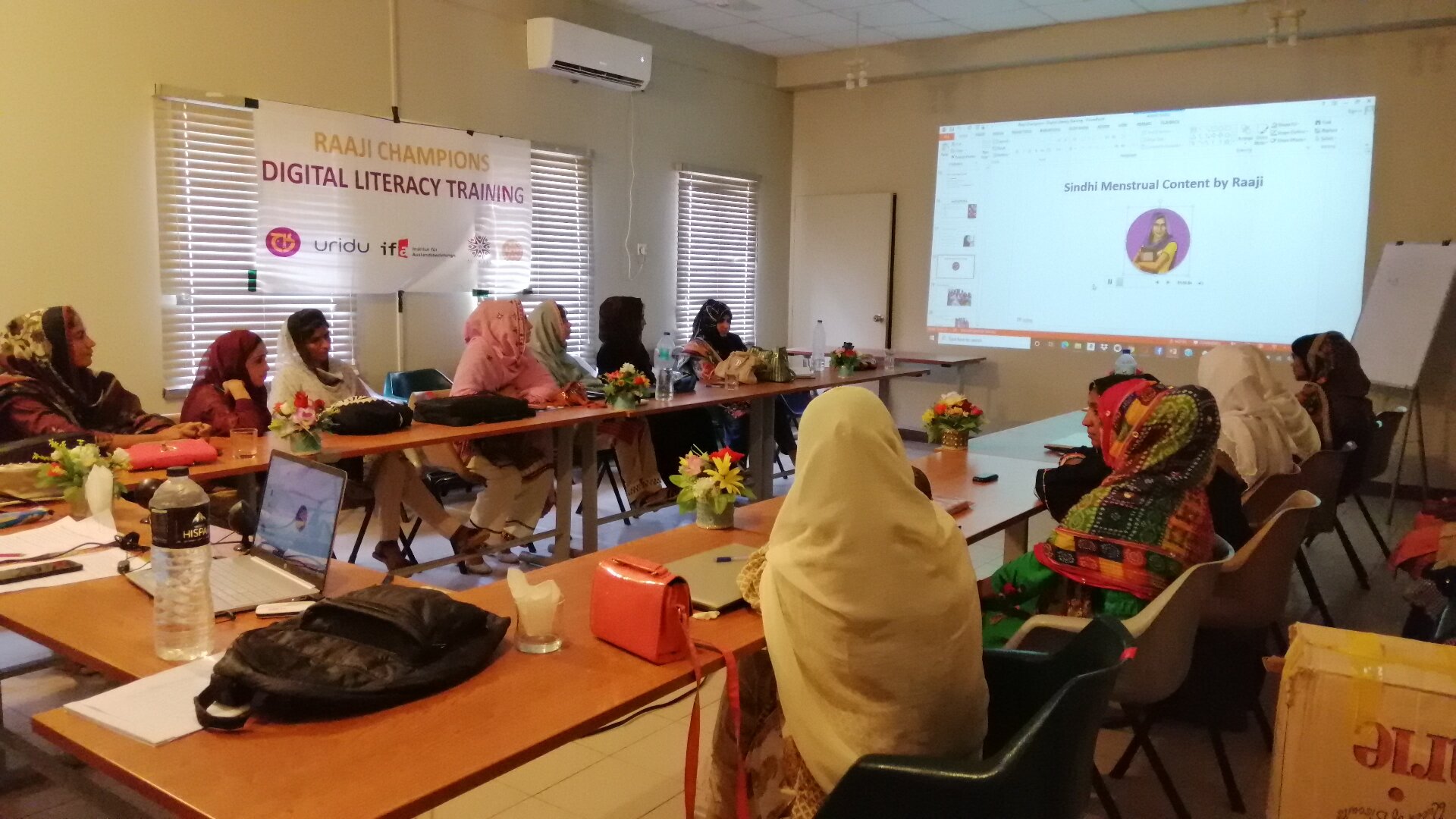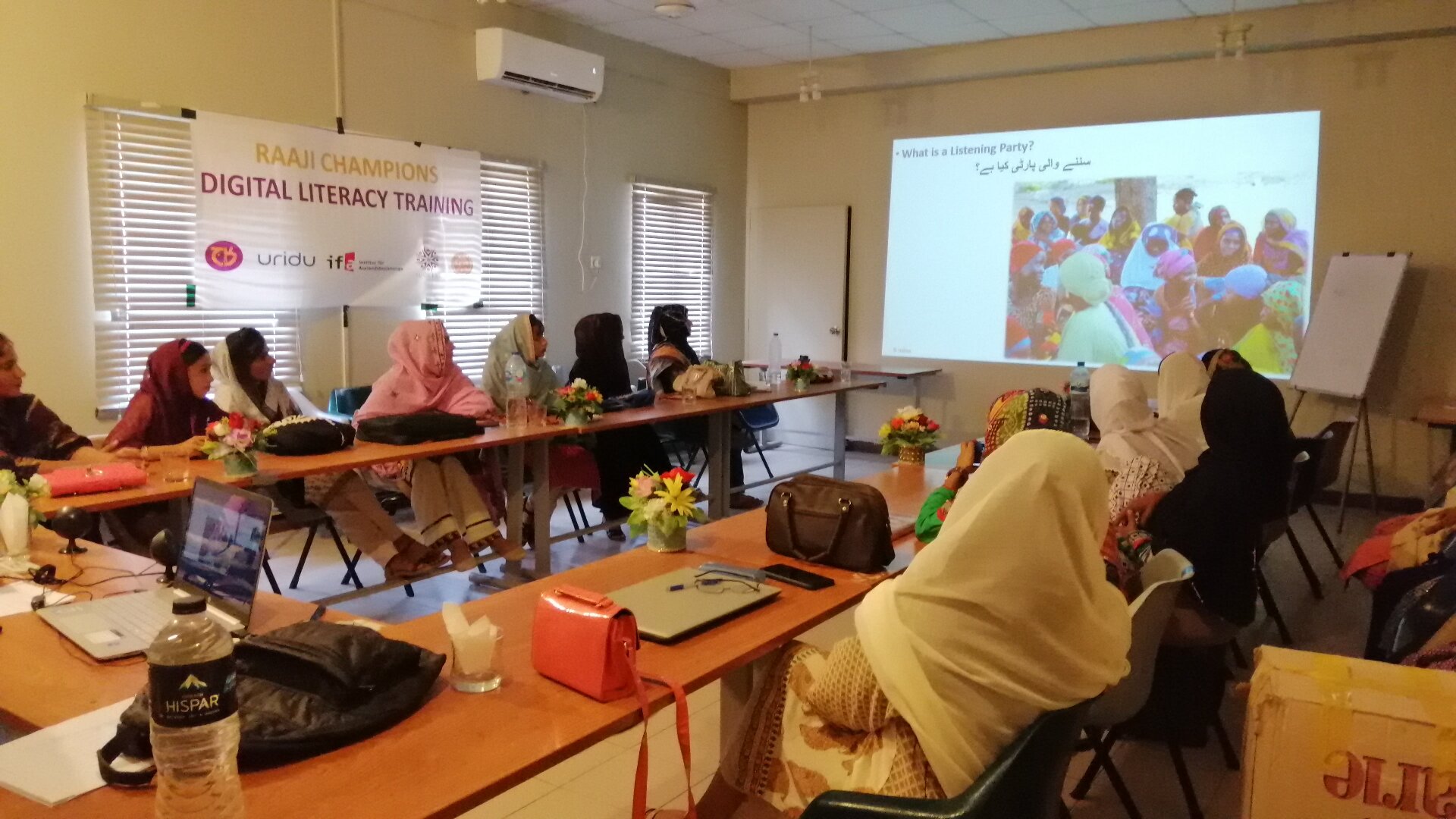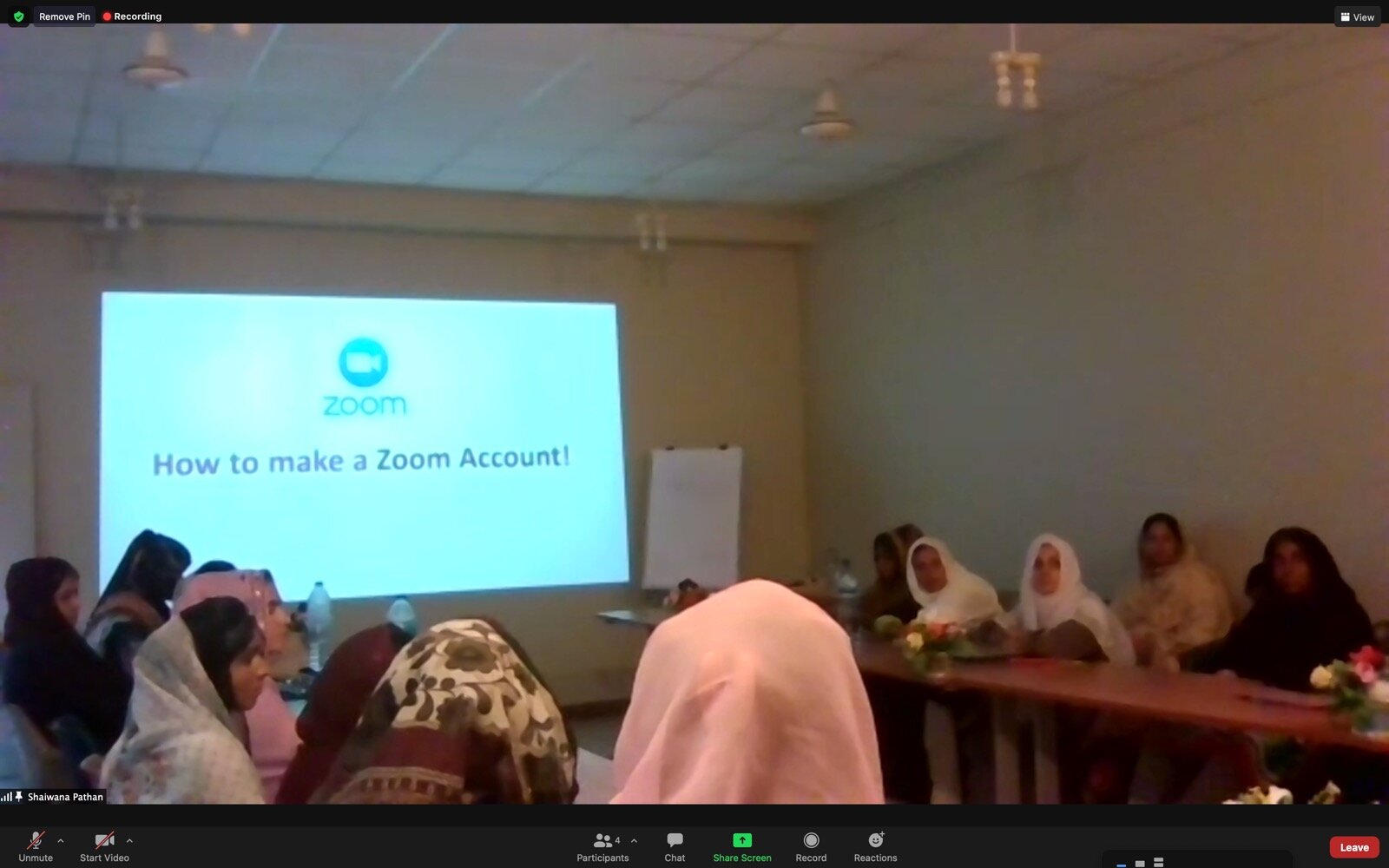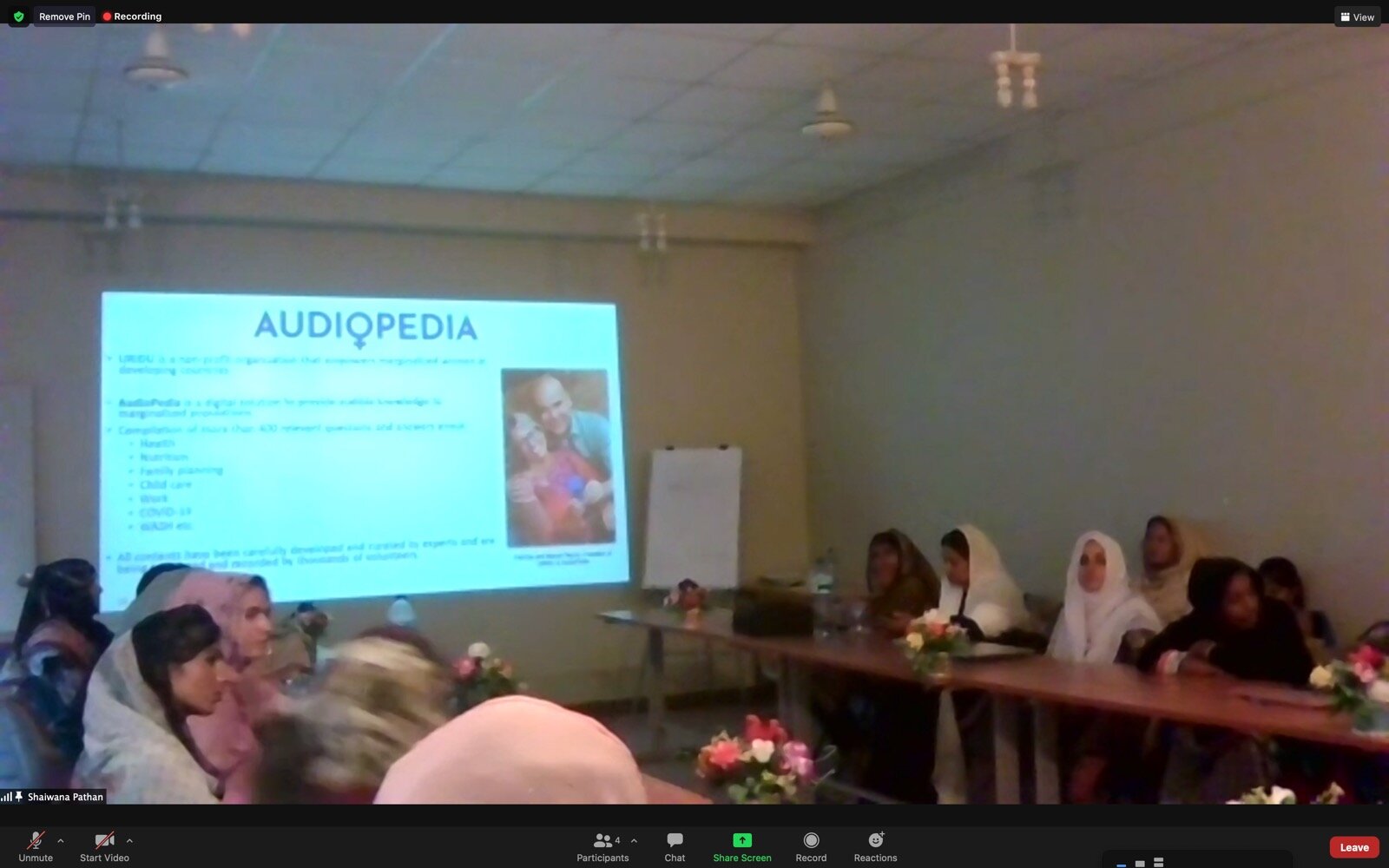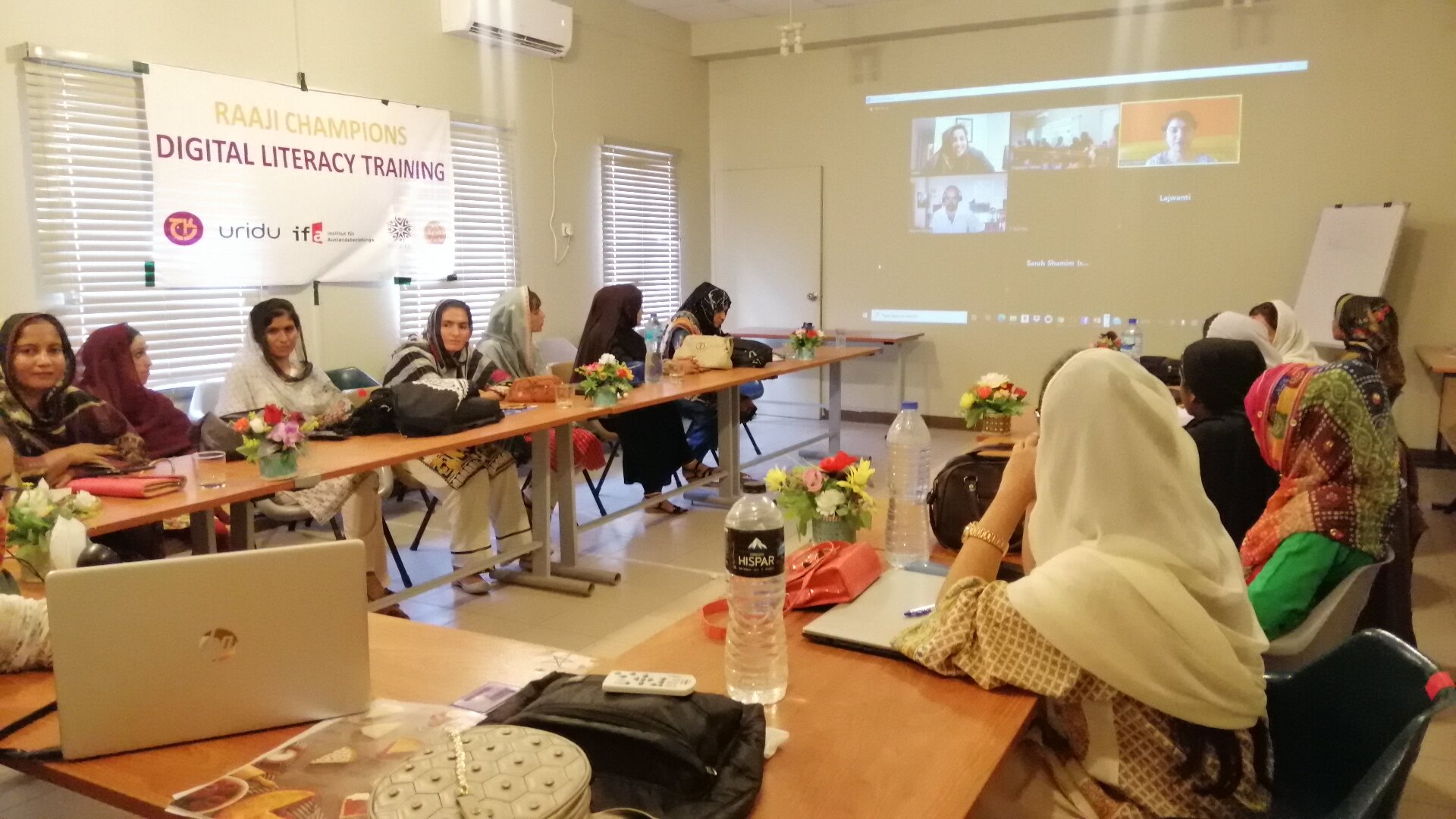IFA, Uridu & Raaji tackle digital literacy together
10 rural women in Sindh receive training, data plans and menstrual kits to begin their journey towards enlightening their villages with menstrual knowledge.
In partnership with SUCCESS Programme, NRSP, TRDP, SRSO, Uridu and IFA, we are aligned to provide the most remote rural audiences in Sindh, Pakistan with access to connectivity, social platforms, and reproductive health information. In this new normal, digital venues such as Zoom sessions/meetings/classes/calls serve as a long-term digital solution for post-pandemic socio-cultural, economic, and health rehabilitation for rural women and girls.
According to The Diplomat; “Pakistan ranked 76th out of 100 nations in The Inclusive Internet Index 2020, placing it in the bottom quartile of countries (24th out of 26 Asian countries).” When we think of digital literacy, we may come across a lot of questions. Are we digitally literate? Has COVID-19 had an impact on the digital literacy rate? When it comes to digital literacy, what does Pakistan think of the rural-urban divide? Is online education, telemedicine, and online purchasing available to the rural audience? What can we do to improve rural digital literacy?
In the post-pandemic world, the rural areas and its marginalized communities (Girls and women) are at utmost risk of being hit harder by limited education and earning prospects, dwindling health facilities, and increased family and caretaking chores, particularly in rural Sindh. We believe that physical constraints to education, information, and economic possibilities can be eliminated by establishing a digital community hub where rural women can communicate directly with people from all over the world and represent themselves, rather than relying on others who may voice their needs. So, we started off with establishing 2 Raaji Rooms in Sindh’s different villages with the goal to facilitate them in promoting their existing work, educating both adolescents and women on reproductive health, and keeping up with technology advancements.
Uzma and Urbeli, the leaders of the Raaji Room, have been trained to host/participate-in virtual meetings to learn self-defense tactics, lead virtual adolescent programmes, share sanitation conditions of their village toilets, and now help to spread audio menstrual awareness content in other areas. It all started when we trained them on basic digital literacy skills.
The success of Raaji Rooms led us towards building the digital capacity of other community leaders. We strongly believe that rural girls and women have enough potential to grow digitally. We took this opportunity and organized a full-day Digital Literacy Training which was held at Sindh Rural Support Organisation (SRSO) Complex Sukkur on 26th July. This was a combined effort of Uridu and Aurat Raaj, supported by ifa (Institut für Auslandsbeziehungen) and facilitated by SRSO, our incredible field partner.
In this training, 10 amazing community leaders belonging to different Unions Councils and Villages of Larkana and Kamber-Shahdadkot districts participated. The event was led by Shaiwana Pathan, our Rural Innovation Specialist. We began with a basic understanding of what digital literacy is and how COVID-19 affects digital literacy and rural audiences. After that, we conducted a pre-measurement survey to determine the participants' present ability of using digital tools. Above all, we wanted to know which apps they use the most and whether they are aware of data plans (3g/4g).
Following the survey, we explored some of the advantages of digital literacy and how they relate to rural needs such as open resources for education, learning new skills, establishing online businesses, and conducting online awareness sessions, among other things. To make the workshop more interactive, we screened short videos of our existing Raaji Rooms, and then Uzma, the Raaji Room leader, who also attended the training, spoke about her work in the Raaji Room and how she used digital tools to arrange an adolescent programme.
We showed the participants certain application icons (Whatsapp, Youtube, Google, Gmail, Zoom) and discovered that the majority of the participants are familiar with Whatsapp and Youtube, while only a few are familiar with Gmail and Zoom. We were surprised to find that one of the participants already has her own Gmail account. Then we went through digital literacy in depth and went over how to use these apps. We demonstrated browser usage and mentioned three common browsers: Chrome, Internet Explorer, and FireFox. Following that, showed them how to use Raaji Chatbot through a browser.
When the participants learned about Gmail and Zoom accounts, they were eager to learn how to create their own personal accounts. We demonstrated the simplest steps to create a Gmail and Zoom account. We then introduced the Uridu and its digital solution Audiopedia to let them know what they do for marginalised women and how they work with us in Sindh.
Audiopedia provides audible knowledge to marginalized populations on various topics including Health, Nutrition, Family planning, Child care, Work, COVID-19, WASH etc. With the support of Ifa (Institut für Auslandsbeziehungen), we cooperated with AudioPedia on a unique intersecting audio menstrual education project to develop the capacity of 20 women leaders (ambassadors/champions) and produce local language (Sindhi) “Audio contents for menstrual awareness” with champions.
We then introduced our first audio content for menstrual awareness in the local language Sindhi, which is produced in the voice of Uzma, and then we trained the participants on recording clear and noise-free audio with some important guidelines
We described the idea of a Listening Party and provided examples of other countries where Audiopedia has already hosted such events. Listening Parties are similar to the community meetings that the leaders organize in their villages but using audio contents for awareness. These leaders can also host community listening parties in their homes to spread menstruation awareness.
The most exciting part of the day was connecting these participants with Marcel and Felicitas Heyne, URIDU Founders, Anjum Malik, SUCCESS Programme Communications Officer, Saba Khalid, founder of Aurat Raaj, and the rest of the team. Marcel and Felicitas shared their perspectives, and they were ecstatic to connect with them virtually. Anjum Malik believes that women and men can work together for the development of society. Saba Khalid thanked all of the attendees for attending the workshop and actively engaging.
Finally, we gave all of the participants monthly data plans and also menstrual kits. Our goal is to provide a basic technological starter kit to these incredible activists so that they can engage in virtual training, engagement, entrepreneurship, and mentoring on a global scale.
We learned from participants' feedback that they were unaware of digital privacy concerns, but that they are now setting up their own Gmail accounts on their smartphones to run other apps. They were also fascinated by the idea of arranging listening parties.
We are thrilled to reveal that following the session, we were able to successfully form a Whatsapp Group with these 10 leaders, and they have now begun hosting Menstrual Awareness Listening Parties in their respective communities. Our Raaji Room Leader, Uzma, has already taken this step by hosting the first-ever Menstrual Awareness Listening Party in her neighbouring village on July 27, 2021, right after the training.
Hoping to see these newly trained leaders grow digitally so that they can better serve their communities by disseminating menstruation and health information.
.png)
